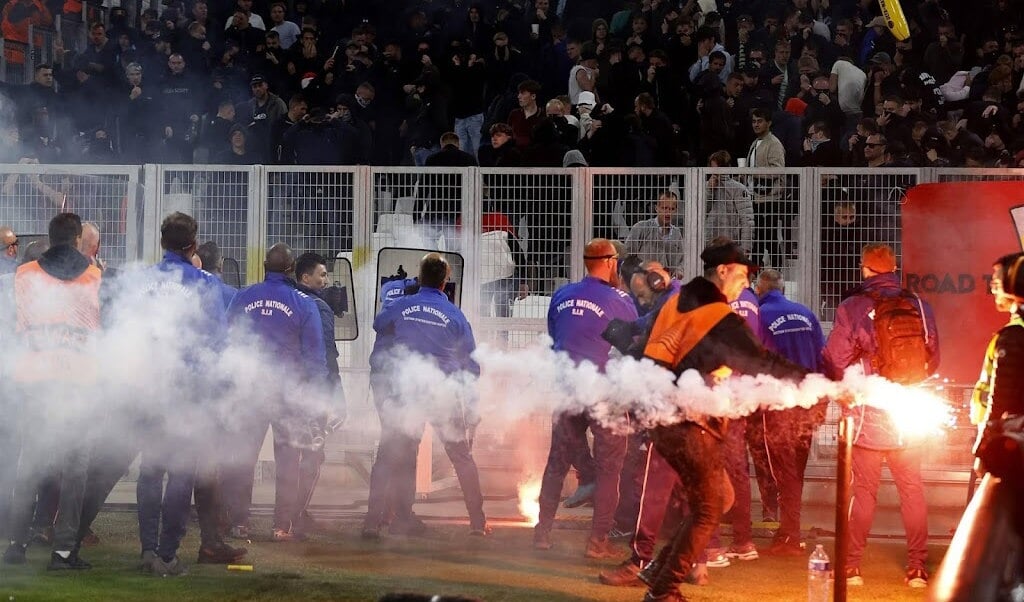The authors of ‘Learning from football riots’ state that football clubs aimed more at hosting, because there was little football violence in and around stadiums for years before the corona period. That led to ‘a certain neglect of security policy.’ And ‘the neglect has been reinforced because many Professional Football Organizations (BVOs) have run into financial problems during the corona crisis.’
Discussions were held with 51 police experts. A picture emerges that violent behavior during confrontations is more intense and extreme than in the past. “Today’s football violence has several characteristics that – certainly when added together – place a major burden on security organizations and in particular on the police,” it is stated.
New growth
The researchers note that there is a ‘new recruitment’: relatively young people, most of them no older than 25 years old. ‘In terms of place in the stadium, the new recruits often follow the ultras (…) who have a more open character and provide atmosphere (actions) in the stadium. They often use fireworks for this.’ This group, often dressed in black, uses banners so that it is not visible who is lighting fireworks and wears a hood or balaclava during confrontations. These young people do not talk to police officers and security coordinators, ‘even when they are stopped and interrogated.’
According to some respondents, there is also a connection between football supporters and organized (subversive) crime and there is said to be influence on clubs and club managers.
The report also contains recommendations. The principle of ‘hospitable accessible football’ must make way for ‘safe football, with a responsible claim on police deployment’. In concrete terms, consideration could be given to neighborhood police officers in the stadium who recognize local problem youth and to investing in the quality and quantity of stewards. There should also be a system in which a Season Club Card (SCC) is linked to an ID card and a registration obligation for people traveling on supporter buses to away matches.
